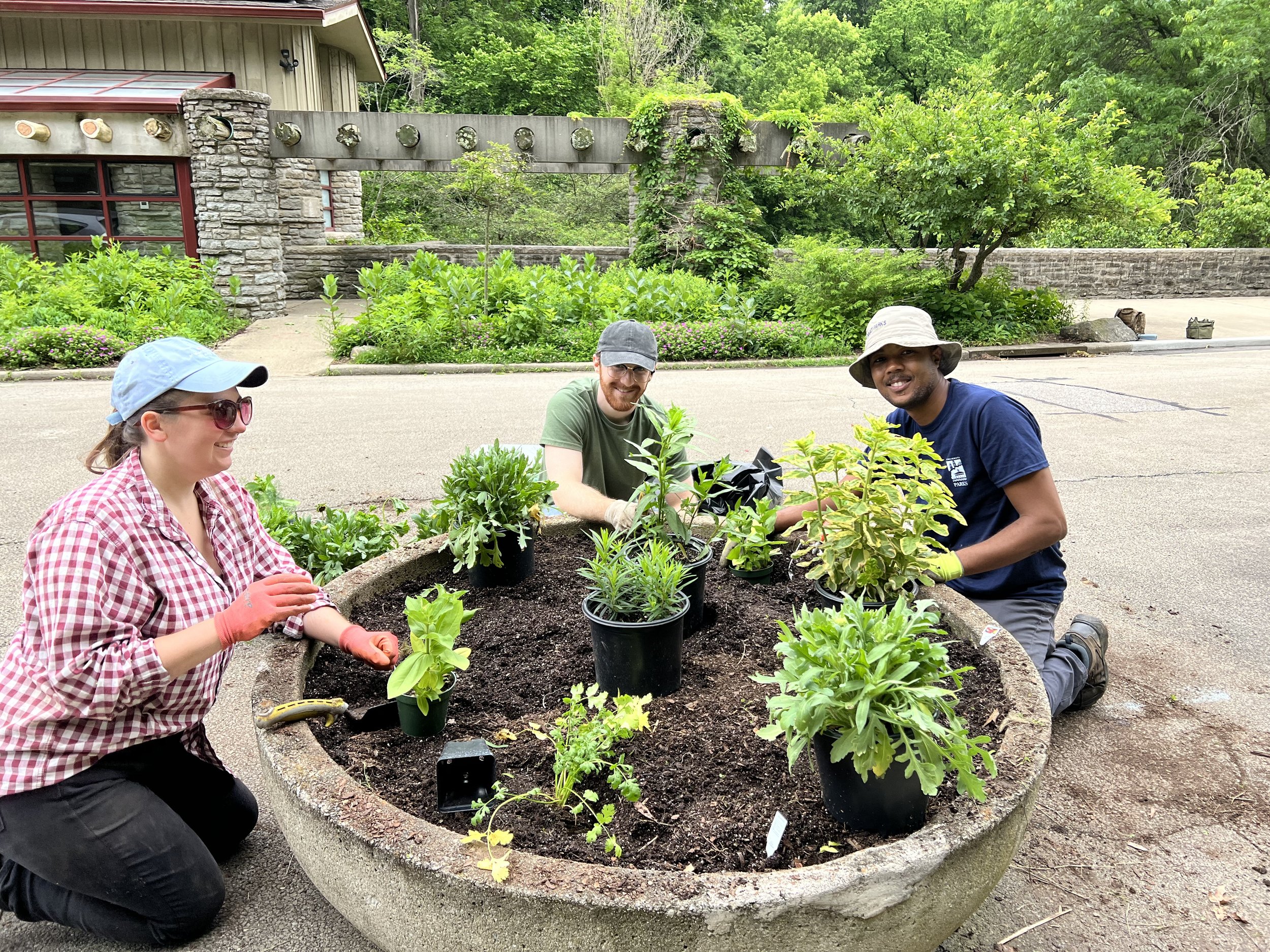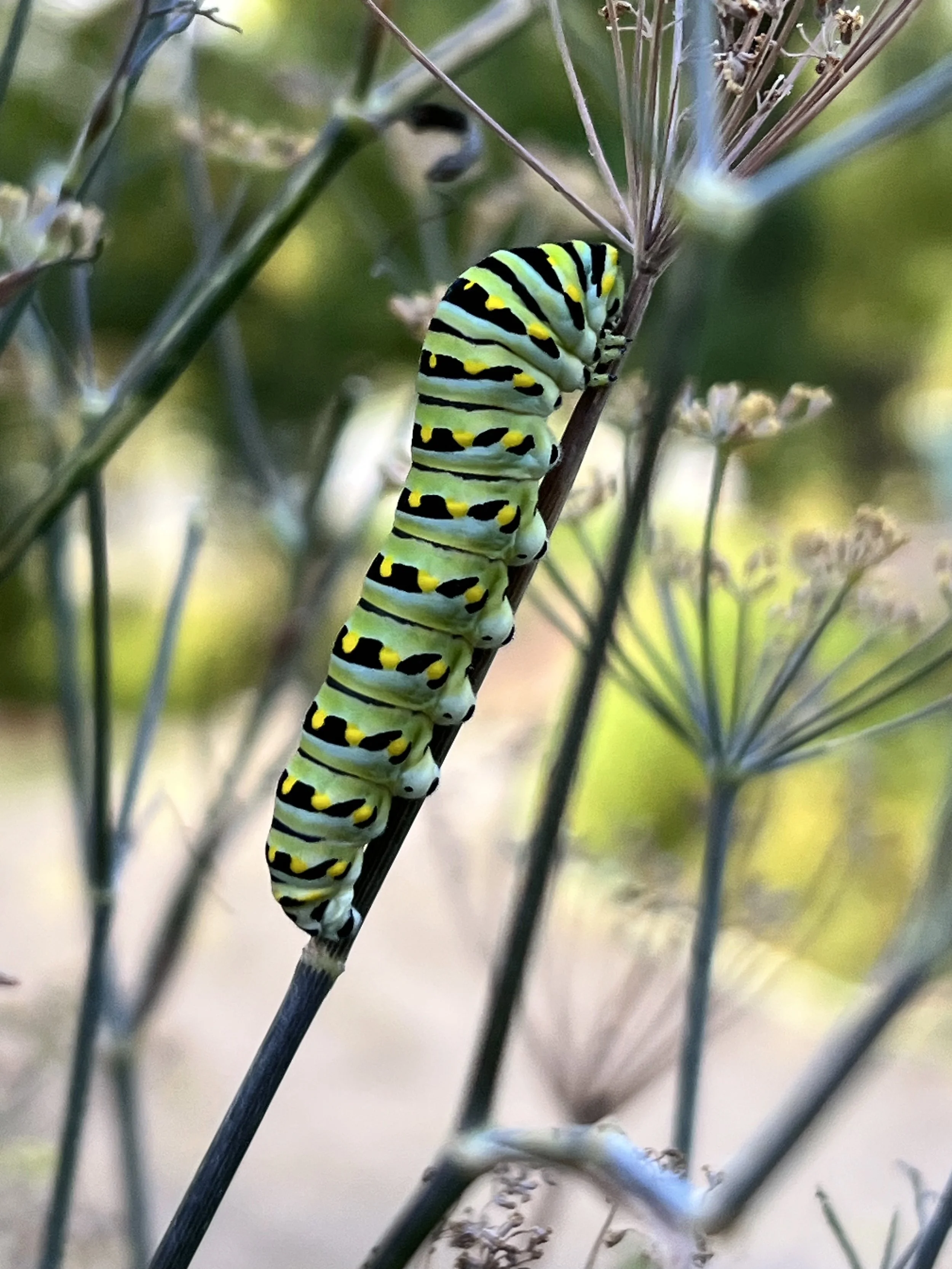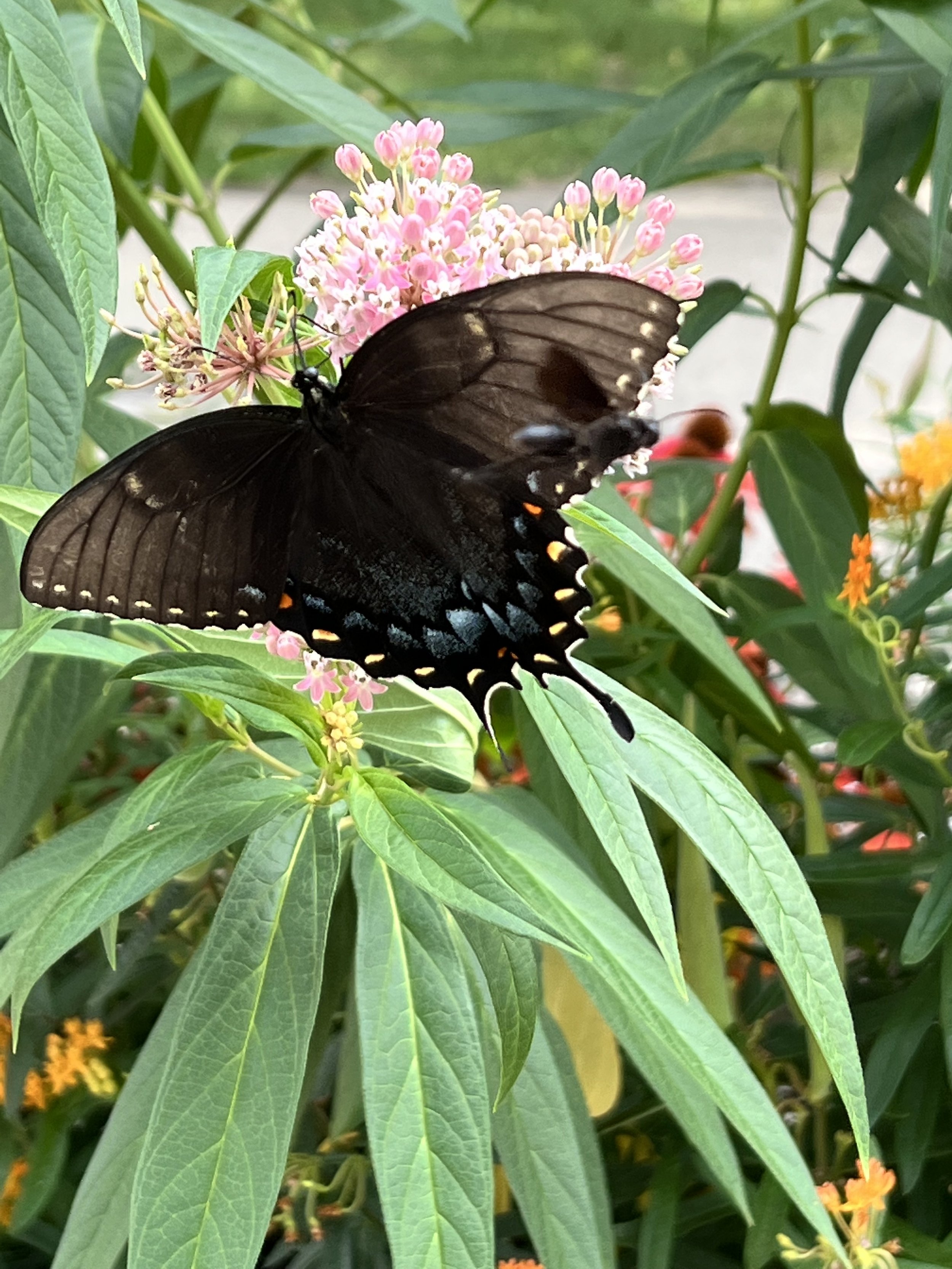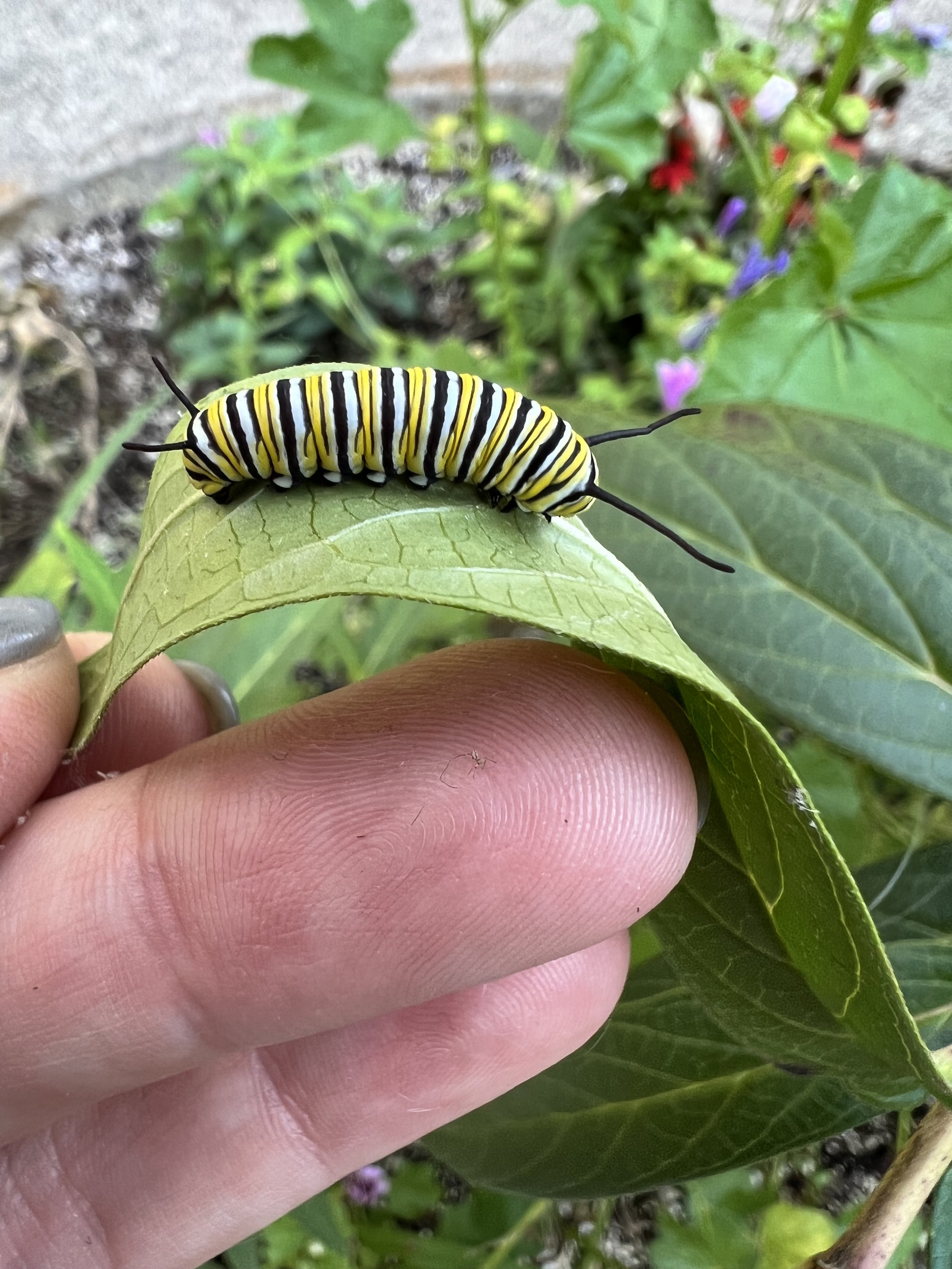
Burnet Woods Planters
We have designed these planters with our native pollinators in mind. We focused on native plants to provide food and habitat for our native butterflies, bees, and hummingbirds!
Through generous donations from our supporters, we are able to maintain the flower pots in Burnet Woods, next to Trail Side.
You'll find both host plants and nectar-providing plants in these pots.
Host plants are plants that butterflies lay their eggs on. The caterpillars that hatch from the eggs then have the perfect food to eat and eat and eat until they are ready to make their chrysalis to become a butterfly. We know that these plants are doing their jobs if they are getting eaten throughout the summer by those very hungry caterpillars. The two host plants you'll find in these pots are:
MILKWEED
the host plant for Monarch butterflies. Both Swamp Milkweed and Butterfly Weed.
PARSLEY AND DILL
just two of the host plants for Black Swallowtail butterflies
Swallowtail butterfly in the Burnet Woods pots
Nectar Plants are plants that our pollinators can sip nectar from and collect pollen from as well. Because each of our pollinators has a different-sized tongue, body, and ability to see colors, we made sure to include a variety of plant colors and sizes of blooms. For example, most bees can't detect the color red. So we want more of their favorite colors, like purple, violet, and blue. On the other hand, hummingbirds are drawn to red! And they have those long beaks. So we put flowers like our native red columbine in for them. Some of the nectar plants you'll find in these pots are:
Native Plants:
Columbine
Cone Flowers (in a variety of colors)
Smooth Penstemon
Both New England Aster and Aromatic Aster
Black-Eyed Susan
Milkweed (these are both a Monarch host plant and also a great source of nectar)
Cardinal Flower
Coreopsis/Tickseed
Bee Balm/Monarda
Annual Plants:
Zinnia
Cosmos
Lantana
Monarch caterpillar in Burnet Woods






